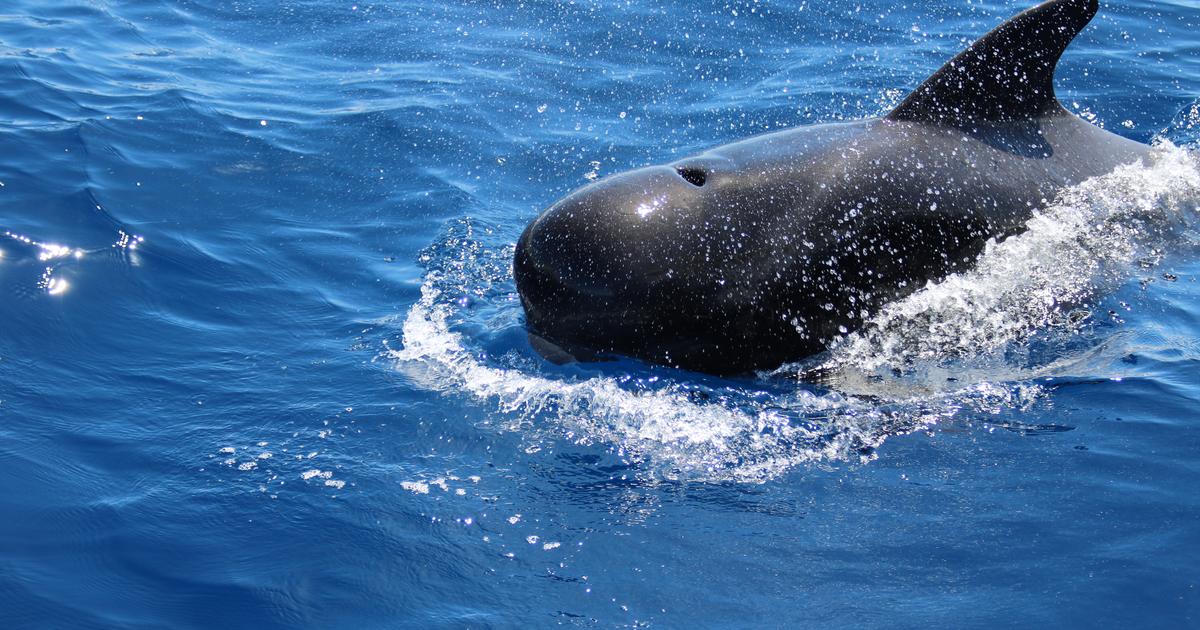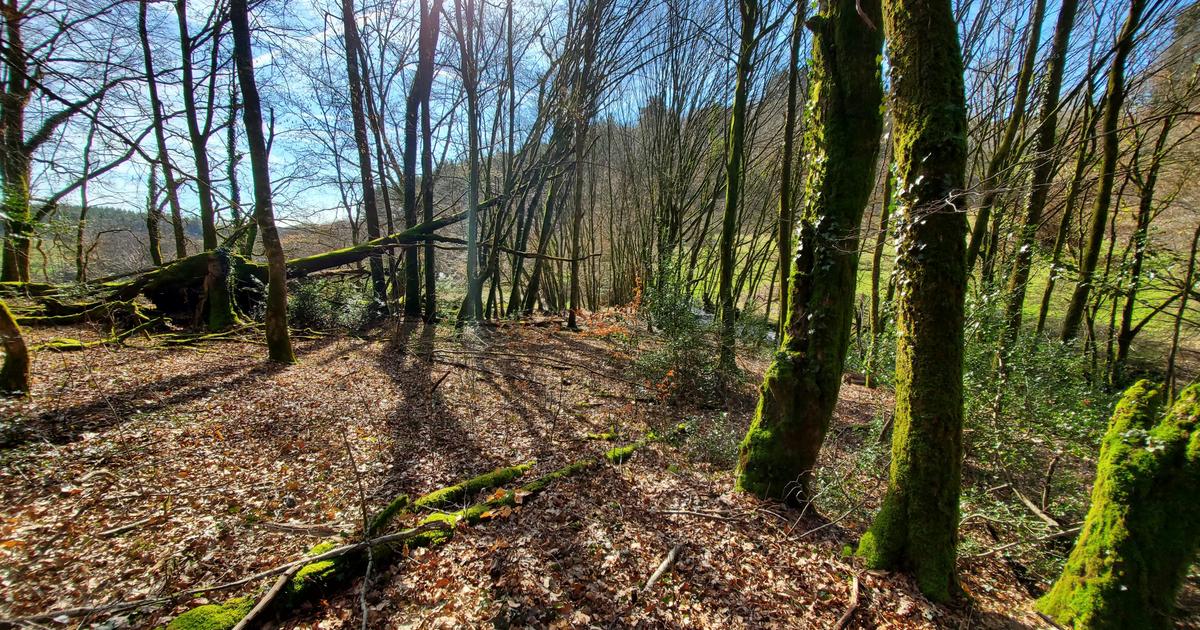Enlarge image
The diversity of species is decreasing worldwide
Photo: Ronald Patrick / Getty Images
At the start of the World Nature Conference in the Chinese city of Kunming, the CEOs of eleven large companies wrote an open letter to the world leaders: Those responsible must do more to prevent the destruction of nature.
Without meaningful measures against the mass extinction of wild animals and against the collapse of ecosystems, "a dead planet" threatens.
Almost 200 signatory states to the UN Convention on Biological Diversity (CBD) take part in the World Nature Conference, most of the delegates are virtually connected. The week-long meeting will take place under the chairmanship of China. The aim of the meeting is to agree on a new framework agreement for the protection of global biodiversity. Further negotiations are also planned in January and a face-to-face meeting in spring 2022.
»The race to reverse the loss of nature and to build a nature-friendly, environmentally friendly and just world has begun.
Nature is at a turning point and time is running against us «, says the entrepreneur's writer.
“We have to recognize the loss of nature for the crisis that it is.
We need to understand that, while nature is vital to tackling climate change, it is more than just a solution to the climate.
The UN Biodiversity Conference COP15 is our last and best chance to stop the loss of biological diversity. "
The signatories of the letter also warn of the economic consequences of a loss of biodiversity - "there will be no business on a dead planet."
The eleven CEOs who signed the letter include the CEOs of Unilever and H&M.
In the past, these companies were repeatedly criticized by environmental protection organizations.
The Unilever group, which produces the ice cream brands Magnum and Lagnese or body care products from Rexona or duschdas, is one of the largest plastic waste producers in the world, according to Greenpeace.
The fashion group H&M sells cheap clothing - and is therefore part of an industry that, according to the United Nations, is responsible for a tenth of global greenhouse gas emissions.
In the meantime, however, both companies have decided to take measures for more sustainability.
The company bosses are calling for an end to environmentally harmful subsidies
The current draft of a UN nature conservation agreement - similar to the Paris climate agreement - does not go far enough, according to the open letter from the company bosses.
The draft sets various goals, such as how to reduce plastic pollution, how to reduce the use of pesticides by two thirds, and how to limit the spread of invasive species.
more on the subject
Impact Investing: Money for Green FoundersBy Stefan Schultz
Ecomillionaire Wyss on his commitment to protecting species: "The German economy is one of the main causes of the global loss of nature" An interview by Philip Bethge
Business representatives also call on governments to abolish all environmentally harmful subsidies. Those involved acknowledge their responsibility to change their business models in such a way that the company can continue to operate “within planetary boundaries”. "In this way we will jointly build healthy societies, resilient economies and thriving businesses," the letter continues.
"We have to follow our impact on the climate and nature with the same discipline as our profits and losses," said Roberto Marques, CEO of the cosmetics group Natura & Co, the British newspaper "The Guardian".
“We urge governments to abolish and redirect all harmful subsidies.
Governments still give a lot of subsidies to industries and initiatives that are very harmful to nature «.
Marques had signed the letter.
His group includes the brands The Body Shop and Aesop.
China has to join in
Marques also commented on the role of the conference's host country, China: The decisions of the world's largest greenhouse gas emitter will determine whether or not the world will meet its environmental goals for this century, he said.
Experts from the World Biodiversity Council have long warned of the extinction of a million species within the next decade and of the devastating consequences for human livelihoods.
Federal Development Minister Gerd Müller (CSU) called on the international community to kick off the conference for joint action on species protection.
"We have no time to lose.
150 species die out every day, ”said a statement from his ministry.
"The world community must finally pull together."
more on the subject
Danger from zoonoses: where the next pandemic will come from - and how it can be preventedAn analysis by Viola Kiel
A joint, binding agreement is necessary, said the minister - and "in our own interest: the more natural habitats are destroyed, the greater the risk that other viruses will spread from animals to humans and cause serious diseases."
The German delegation taking part in the conference in Kunimg is headed by Federal Environment Minister Svenja Schulze (SPD).
At the start of the World Species Protection Conference, she called for more protected areas as well as verifiable international standards.
By 2030, 30 percent of land and sea areas would have to be placed under protection and species extinction stopped, she said in Berlin.
"The World Nature Conference is the chance for a fresh start."
The UK is experiencing a dramatic decline in biodiversity
New surveys keep showing that biodiversity is falling drastically worldwide.
The Guardian newspaper reported that Great Britain was particularly affected by the loss of biodiversity.
Agriculture and the urban expansion triggered by the industrial and agricultural revolution could be blamed as the main factors behind the loss of biodiversity, as a study by scientists from the London Museum of Natural History shows.
According to this, the UK is one of the worst-rated countries in the world for the extent to which its ecosystems have been preserved.
"Great Britain has lost more of its natural biodiversity than almost all other Western European countries, more than all G7 countries and more than many other countries like China," said Professor Andy Purvis from the museum's natural science department to the Guardian.
Purvis' team created an index of biodiversity integrity.
This Biodiversity Intactness Index (BII) estimates how much of the natural biological diversity of an area has been preserved.
The limit value has long since fallen below
Overall, the world's biological diversity is estimated at 75 percent.
The 90 percent value is considered a safe limit to prevent the planet from sliding into an ecological recession that could result in famine.
The UK scores 53 percent on this scale.
According to the index, the value in Germany is around 60 percent.
»Biodiversity is the engine that creates everything we consume.
You can think of it as a wild supermarket that provides us with food and other gifts without our having to do anything.
The fact that we have different kinds of apples, tomatoes and other foods is due to biodiversity - and if it decreases, we have lost, ”Purvis said.
vki / AFP / dpa








/cloudfront-eu-central-1.images.arcpublishing.com/prisa/6W5UW5NK5ZH77N2RSC3TBYR33Y.jpg)